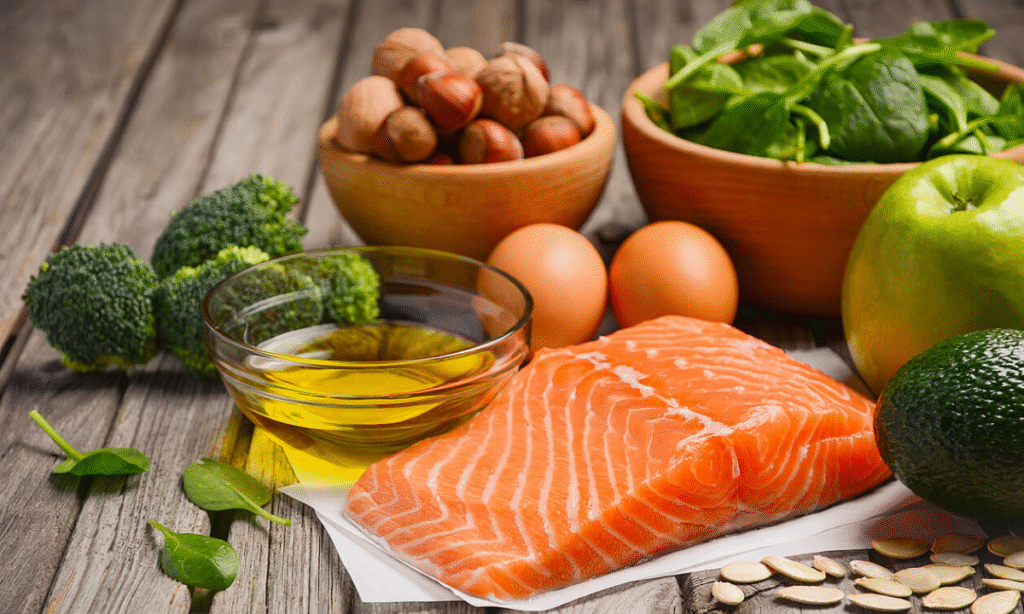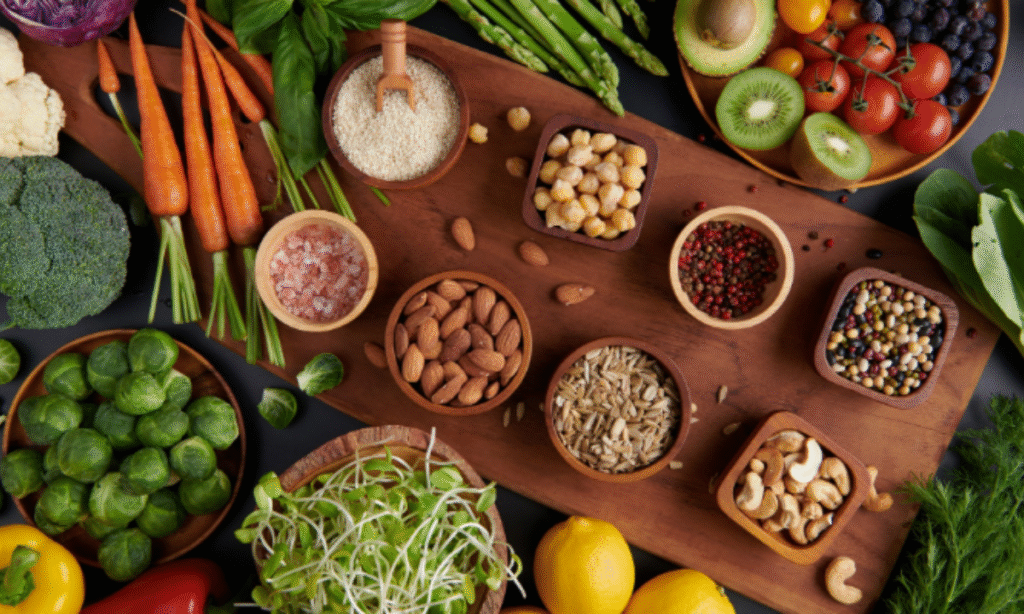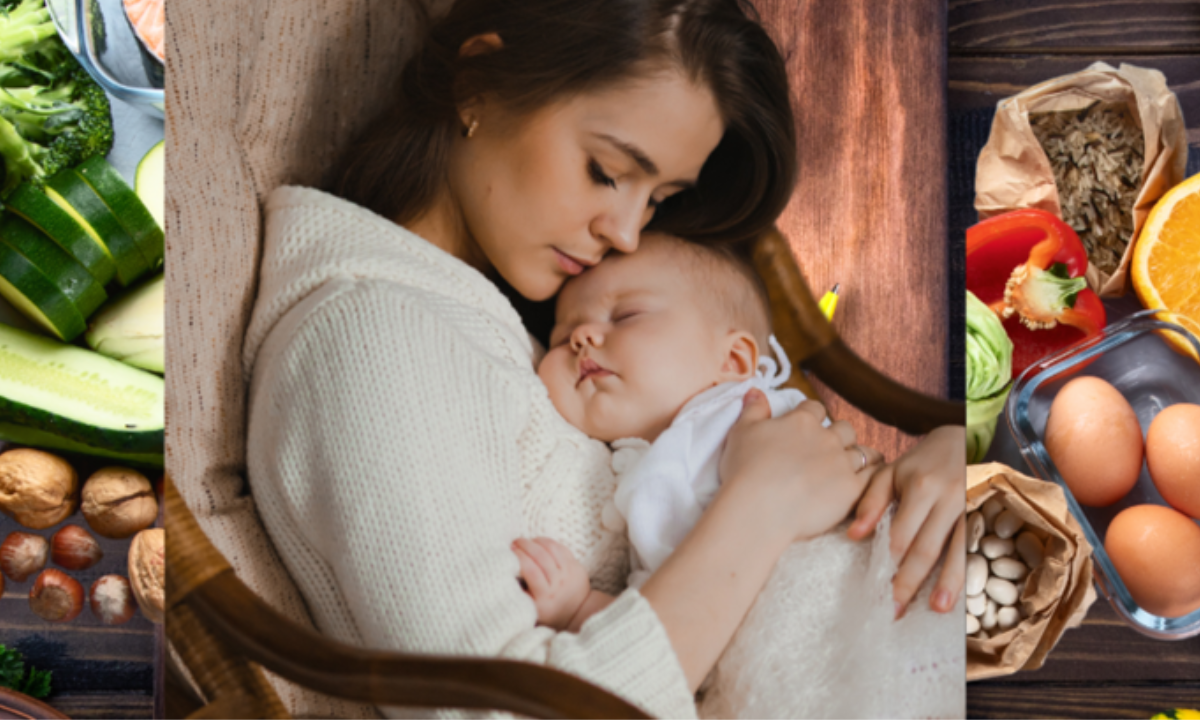A postpartum diet is one of the most important aspects of recovery for new mothers. After childbirth, the body undergoes immense changes, and the right foods help you heal, rebuild strength, and support breastfeeding.
I always remind new moms that what they eat after delivery is not just about them; it directly impacts their baby’s growth, immunity, and long-term health.
At Nutri Activania, I, Avni Kaul, help mothers with personalized diet plans that promote recovery, energy, and well-being. If you are searching for a professional dietitian in Delhi, you will realize how valuable the right guidance can be during this delicate phase.
But here’s the part many people forget: your postpartum nutrition today plays a key role in shaping your health years later. Curious how? Let’s explore together.
Why a Postpartum Diet is So Important

- Helps heal tissues and reduces inflammation after delivery.
- Replenishes nutrients lost during pregnancy and childbirth.
- Improves mood and lowers the risk of postpartum depression.
- Supports milk production for breastfeeding mothers.
- Encourages safe, gradual weight loss in postpartum.
A balanced diet ensures you feel strong, energized, and emotionally stable while caring for your newborn.
Postpartum Diet for Mother

The first few weeks after delivery are about repair and nourishment. Instead of cutting calories, focus on nutrient-rich meals that restore your body.
Here’s what to include in your daily meals:
- Whole grains like oats, millets, and brown rice for energy.
- Proteins from dal, fish, chicken, and eggs for healing.
- Green leafy vegetables for iron and calcium.
- Healthy fats such as ghee, nuts, and seeds.
- Traditional Indian remedies like ajwain water, gond laddoos, and methi laddoos for strength and digestion.
Remember, a postpartum diet for mother is about giving your body the love and nourishment it deserves after nine months of pregnancy.
Indian Postpartum Diet

Our traditional Indian postpartum diet is full of healing foods that have been trusted for generations. These foods not only aid recovery but also help maintain milk supply and prevent common postpartum issues.
Some staples include:
- Ghee for tissue repair and immunity.
- Haldi milk for faster healing and better sleep.
- Methi seeds to boost lactation.
- Cumin and ajwain water for digestion and bloating relief.
- Ragi and sesame seeds for calcium.
Unlike fad diets, these traditional foods are safe, nourishing, and easy to include in daily meals.
A Sample Postpartum Diet Plan
Here’s a simple postpartum diet plan while breastfeeding that balances energy, recovery, and milk supply.
| Time of Day | Foods to Include | Benefits |
|---|---|---|
| Early Morning | Warm ajwain/methi water | Aids digestion, reduces bloating |
| Breakfast | Vegetable upma and milk | Boosts energy and calcium |
| Mid-Morning | Seasonal fruit (apple, papaya, pear) | Vitamins and fiber |
| Lunch | Brown rice or roti, dal, sabzi, and curd | Balanced nutrition |
| Evening Snack | Gond laddoo and herbal tea | Improves lactation, gives strength |
| Dinner | Khichdi or light roti with sabzi | Easy to digest, light for the night |
| Bedtime | Turmeric milk | Healing and help for restful sleep |
This plan is flexible; you can swap foods based on your tastes and needs.
Postpartum Diet for Weight Loss

It’s natural to want to get back in shape, but quick fixes often backfire. Crash dieting may reduce milk supply and leave you weak. A postpartum diet for weight loss should be gradual, safe, and sustainable.
Healthy Weight Loss Tips:
- Start gentle exercise, like walking or yoga, only after your doctor’s approval.
- Eat more home-cooked meals and less packaged food.
- Add lean proteins like paneer, lentils, and eggs to stay fuller longer.
- Use portion control instead of skipping meals.
- Stay hydrated; water, soups, and coconut water are essential.
The goal is steady progress, not rapid changes. Your body needs time, so be patient with yourself.
Key Nutrients for New Moms
| Nutrient | Sources | Why It’s Important |
|---|---|---|
| Iron | Spinach, jaggery, dates | Prevents anemia, restores strength |
| Calcium | Milk, paneer, sesame seeds | Keeps bones strong |
| Protein | Lentils, chicken, fish | Helps repair tissues |
| Omega-3 | Walnuts, flaxseeds, fish | Boosts baby’s brain health |
| Fiber | Fruits, oats, and vegetables | Eases digestion, prevents constipation |
These nutrients should form the base of your daily meals. They help both mother and baby thrive.
Simple Tips for New Moms
- Meal prepping: Keep easy-to-cook items ready to save time.
- Eat small, frequent meals: avoid heavy meals that may cause indigestion.
- Snack smartly: choose nuts, seeds, or fruits over fried snacks.
- Rest whenever possible: nutrition works best when paired with good sleep.
Seek expert advice: I, Avni Kaul, a pregnancy dietitian and nutritionist in Delhi, can give you personalized guidance.
Why Professional Guidance Matters
Every new mother has unique needs. Some struggle with low milk supply, while others worry about losing weight too fast. Some may face digestion issues, while others feel constant weakness.
This is where working with a nutritionist in Delhi makes a difference. A professional ensures your postpartum diet is safe, practical, and effective for your lifestyle.
At Nutri Activania, I, Avni Kaul, create diet plans that respect traditional Indian practices while balancing modern nutritional science. This approach makes recovery smoother, healthier, and more enjoyable for you.
Final Thoughts
The journey after childbirth is beautiful yet demanding. Eating the right foods through a thoughtful postpartum diet plan ensures your body heals, regains energy, and supports your baby’s nutrition.
If you are searching for a trusted dietitian in Delhi, professional advice can make a big difference in your recovery. At Nutri Activania, I, Avni Kaul, have helped countless mothers embrace motherhood with confidence, strength, and good health.
Your body has done something extraordinary. Now it’s your turn to care for it with love, patience, and nourishing foods that make both you and your baby thrive.
FAQs on Postpartum Diet
1. Is dizziness normal postpartum?
Yes, dizziness is common due to low iron, blood loss, or sleeplessness. Eating iron-rich foods, staying hydrated, and resting help reduce it effectively.
2. How long is postpartum recovery?
Basic recovery takes about 6–8 weeks, but full healing, including energy and hormonal balance, may take 6 months or more, depending on your body and care.
3. What is postpartum weakness?
It’s the fatigue and low stamina mothers feel after delivery. A nutritious postpartum diet rich in protein, calcium, and hydration helps overcome this weakness naturally.
4. Can I drink coffee while breastfeeding?
Yes, but limit it to one cup daily. Too much caffeine may affect your baby’s sleep or digestion. Herbal teas are safer alternatives for relaxation.
5. Which fruits are best postpartum?
Fruits like papaya, apple, banana, and pomegranate are ideal. They are rich in vitamins, minerals, and fibre, helping with digestion and boosting immunity.


